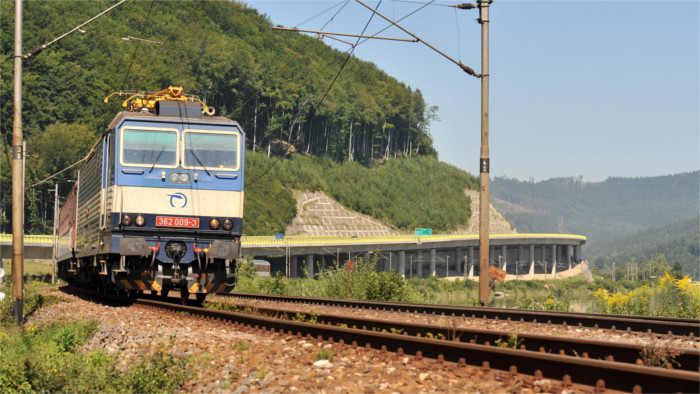Transporting goods and commodities from China to Europe, and the other way around, will soon be easier thanks to an agreement signed by the Slovak and Chinese governments at a summit in the Latvian capital Riga last week devoted to relations between Beijing and 16 Central and East European States. The main focus of the summit was boosting trade between China and the region and stepping up the investment volume. A memorandum of understanding signed by Slovak and Chinese government officials as a result of two years of negotiations, concerns a rail link between China and western Europe leading across Kazakhstan, Russia, Ukraine and Slovakia.
As pointed out in the memorandum, Slovakia, as a member country of the Schengen zone, is an attractive stepping stone for Chinese exports to the European Union and for imports of products from the single European market. According to Dana Meager, Secretary of State at the Slovak Finance Ministry, the agreement will lead to a higher volume of two-way trade with China. " It is really beneficial for the Slovak Republic that business relations with China are picking up throughout the Central and East European region, which means more transport routes will be needed in the future and more goods will be carried," Meager said.
Four times faster by rail
In very practical terms, transporting goods and commodities overland will significantly cut the time needed especially for fragile goods to arrive. "When it comes to sea transport, it takes about 45 days, which is a long time. However, rail transport, which means the Trans-Siberian railway, and the extension of it runs across Slovakia from Ukraine, we're only talking 10 to 12 days. Which means four timess less time", Dana Meager explained.
Slovak Prime Minister Robert Fico, who attended the 16+1 summit in Riga, told a news conference there that rail links were not the only topic of future co-operation discussed with the Chinese. He explained that Beijing is also looking for an air transport hub in Central Europe, and that the Slovak delegation, on its part, presented the advantages of the capital, Bratislava, serving as such a hub."Bratislava has excellent opportunities to build a cargo airport, and we have encountered a lot of interest in that from Chinese investors. We are talking of building an entirely new extension to the existing airport which would deal solely with cargo transport," Fico said.
Slovakia's rail link with China is not the first such a transport corridor between Europe and the Far East. In recent years Poland has opened up a rail link of its own terminating in the industrial region of Upper Silesia, with the hope of bringing in more Chinese investment. That, however, has not materialised, which experts blame on the failure of two Chinese investment projects in Poland: one dealing with motorway construction, and one in IT.
Another China-EU rail link exists starting out in Shanghai, leading across Russia and ending in Berlin and Hamburg in Germany. That link is described by analysts as much more successful, but not necessarily a rival for the Slovak link, because the German transport corridor to China is situated much further to the north.
Genuine committment
Not that the Chinese have had a problem getting their goods into Central Europe so far. This Cinsky obchod, or Chinese market in central Bratislava is an excellent example of that. It's full of reasonably priced clothing, consumer durables and innovative gadgets especially kids make a beeline for. But on both sides, in China and Central Europe, there's a realisation of the fact that simple imports of cheap Chinese-manufactured goods is not enough, and that a broader vision of the region's trade with China is necessary.
So what's the insiders' view on the outcome of the 16+1 summit in Riga for Central and East European countries? Sylwester Szafarz, who heads the Polish-Chinese Chamber of Commerce, is of the opinion that following a time of initial caution, the Chinese are now genuinely committed to developing trade relations with countries like Slovakia. "The Chinese were a little bit afraid of the outcome of transformations here in Central and Eastern Europe, but now Hungary, Slovakia and the Czech Republic are considered as, first of all, a market for Chinese goods. And secondly, as a place where to establish new factories, new manufacturing units in order to manufacture here on site," Szafarz says.
Slovakia to open rail link to China
Máte problém s prehrávaním? Nahláste nám chybu v prehrávači.


